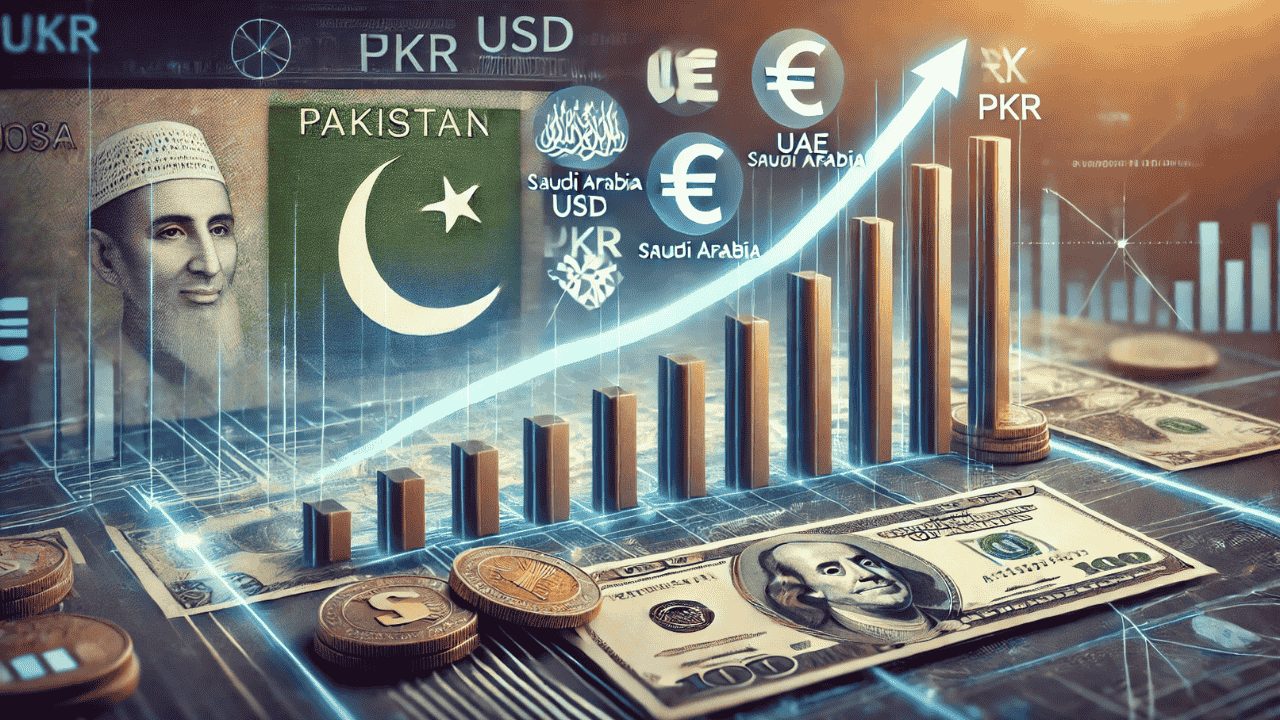By Moaaz Manzoor
ISLAMABAD– Pakistan’s remittance surge, driven by policy reforms and formal channels, underscores short-term economic stability, but long-term sustainability hinges on skilled migration and financial innovation.
Record Growth in Remittance Inflows
Over the past months, Pakistan’s remittance inflows have exhibited sustained growth, reinforcing the country’s foreign exchange reserves and economic stability.
The latest data from the State Bank of Pakistan shows that in February 2025, remittances reached $3.12 billion, marking a 32.55% year-on-year increase.
This upward trajectory, particularly in the first eight months of FY25, has pushed total inflows to $24.0 billion. Higher contributions from key remittance hubs, including Saudi Arabia, the UAE, the UK, and the US, have fuelled the consistent rise.
Government Policies Driving Remittance Growth
Government-led policy interventions, such as incentives for formal banking channels and stricter enforcement against illicit financial flows, have driven this shift.
Additionally, seasonal factors linked to the fasting month and a more stable exchange rate have encouraged expatriates to utilise official remittance pathways.
Expert Insights on Remittance Trends
Speaking to this reporter, Rao Asad, an economist and financial analyst at the Federation of Pakistan Chambers of Commerce and Industry (FPCCI), noted that remittances continue to be a vital stabiliser for Pakistan’s external account.
“The current account has remained largely dependent on remittance inflows, with Saudi Arabia, the UAE, and the UK being the key contributors,” he explained.
Pakistan’s Current Account and Economic Stability
Between July 2024 and January 2025, Pakistan received $22.83 billion in remittances, critical in maintaining a current account surplus of $682 million.
While February 2025 saw a 2.5% month-on-month dip, Asad emphasised that the overall trend remains strong, bolstered by government policies encouraging formal remittance channels.
Challenges of Remittance Dependency
Dr Junaid Ahmed, senior research economist at Pakistan Institute of Development Economics, cautioned that while remittances provide essential short-term financial support, Pakistan must not overlook the long-term risks of dependency.
“Relying on remittances as a primary economic pillar is unsustainable. The focus should shift toward creating a skilled workforce that can secure higher-paying jobs in global markets,” he suggested.
Need for Skilled Migration and Workforce Development
Pakistan’s migration trends have remained stagnant for decades, relying heavily on low-skilled labour exports. In contrast, countries like India have positioned their workforce in high-value sectors, fostering more substantial foreign investment and economic linkages.
Ahmed stressed the need for structured policies to upskill IT, engineering, and finance workers to enhance both the volume and quality of remittance inflows.
Role of Digital Innovation in Remittance Growth
Additionally, he pointed out that digital innovations, including blockchain and fintech-based remittance solutions, could reduce costs, increase transparency, and attract more inflows into formal channels.
“Pakistan must explore regulatory frameworks that encourage fintech solutions while maintaining compliance with global financial standards,” he noted.
Future of Pakistan’s Remittance and Economic Growth
While Pakistan’s remittance growth is a positive economic development, experts agree that its long-term benefits depend on policy-driven workforce transformation and financial innovation.
Ensuring a shift toward high-value labour exports and leveraging digital finance can enhance remittances’ role in strengthening Pakistan’s economy beyond short-term relief.

